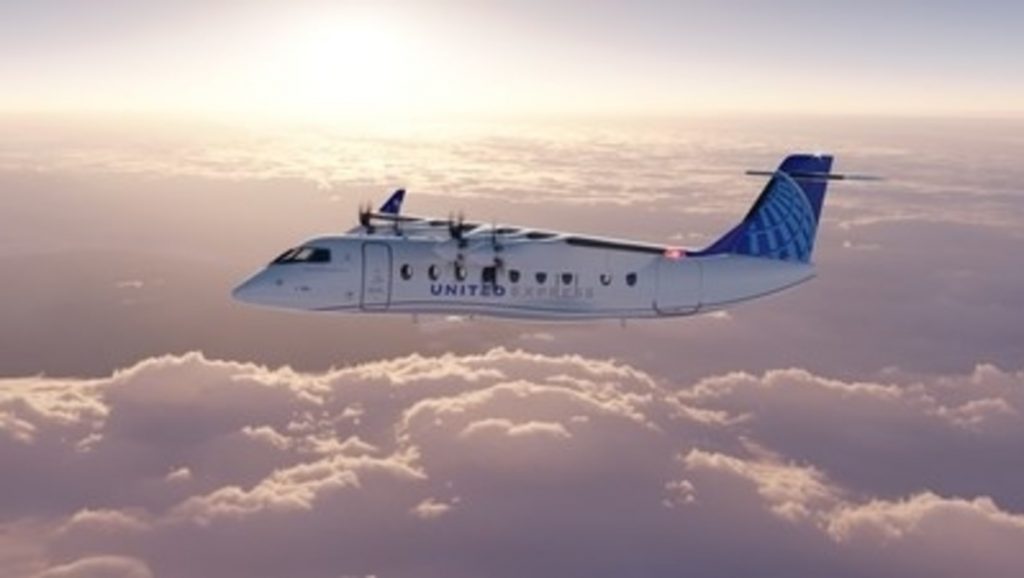
United Airlines has signed an agreement with Swedish startup Heart Aerospace to purchase 100 of its ES-19 aircraft for short-haul flights.
The 19-seat aircraft has the potential to fly passengers up to 250 miles and is expected to launch by 2026.
The airline’s venture capital fund, United Airlines Ventures (UAV), has made the investment alongside regional partner Mesa Airlines and Bill Gates’ Breakthrough Energy Ventures (BEV).
UAV is developing a portfolio of companies that focus on sustainability, as the company has committed to 100 per cent reduced carbon emissions by 2050.
Carmichael Roberts from BEV said that while aviation is important to our global economy, it is a “major source of carbon emissions” and one of the hardest to reduce.
He believes electric aircraft is the answer to that problem, enabling a low-cost and clean way of operating regional flights.
“We expect the short-haul regional air travel market to play a key role in the evolution of the electric aircraft,” Michael Leskinen, United’s vice-president of corporate development and investor relations, and UAV’s president, said.
“As battery technology improves, larger-gauge aircraft should become viable, but we’re not going to wait to begin the journey.”
Heart Aerospace is based in Gothenburg, Sweden, and was founded in 2018 as part of the Y Combinator accelerator program the following year.
Finnair signaled interest in the ES-19 aircraft in March this year and will potentially acquire 20 of them for the airline’s short routes.
The announcement follows United’s accumulating investments into more jets and future aviation businesses in response to the pandemic.
Last month, the airline placed a mammoth order of 200 Boeing 737 MAX jets and 70 of Airbus’ equivalent narrow-body A321neo.
The Boeing order includes 150 of the not-yet-certified 737-10, the largest variant of the MAX family, as well as 50 classic 737-8 jets.
Earlier in June, United also struck a deal with Denver-based Boom Supersonic for the purchase of 15 of its supersonic commercial passenger jets, worth over US$3 billion.
The penned deal will see United Airlines welcome 15 Boom “Overture” passenger aircraft, once certified and operational, with an option to take on an additional 35 of the supersonic aircraft.
The company’s second-quarter results are yet to be announced, but it saw a net loss of US$2.4 billion in the first quarter, exceeding forecast expectations.
The company hopes to achieve 45 per cent of its pre-pandemic capacity in the second quarter.













